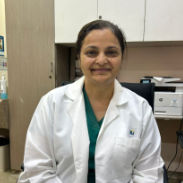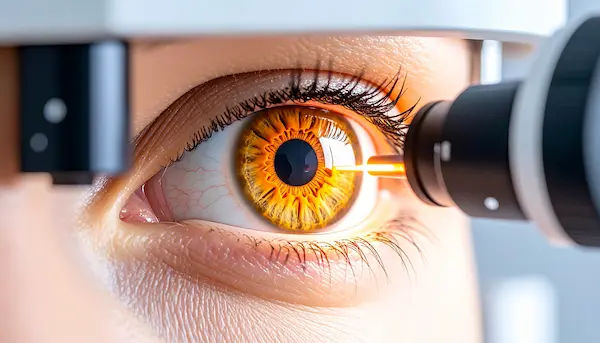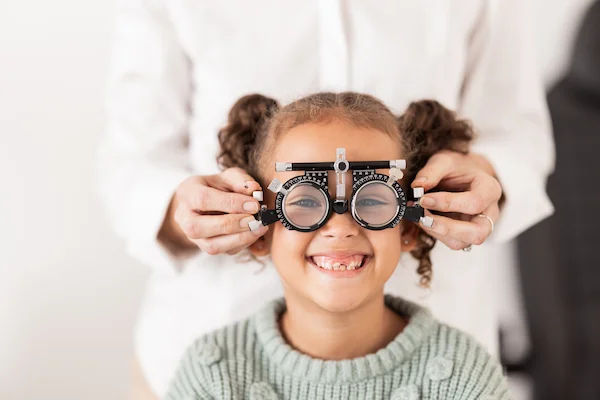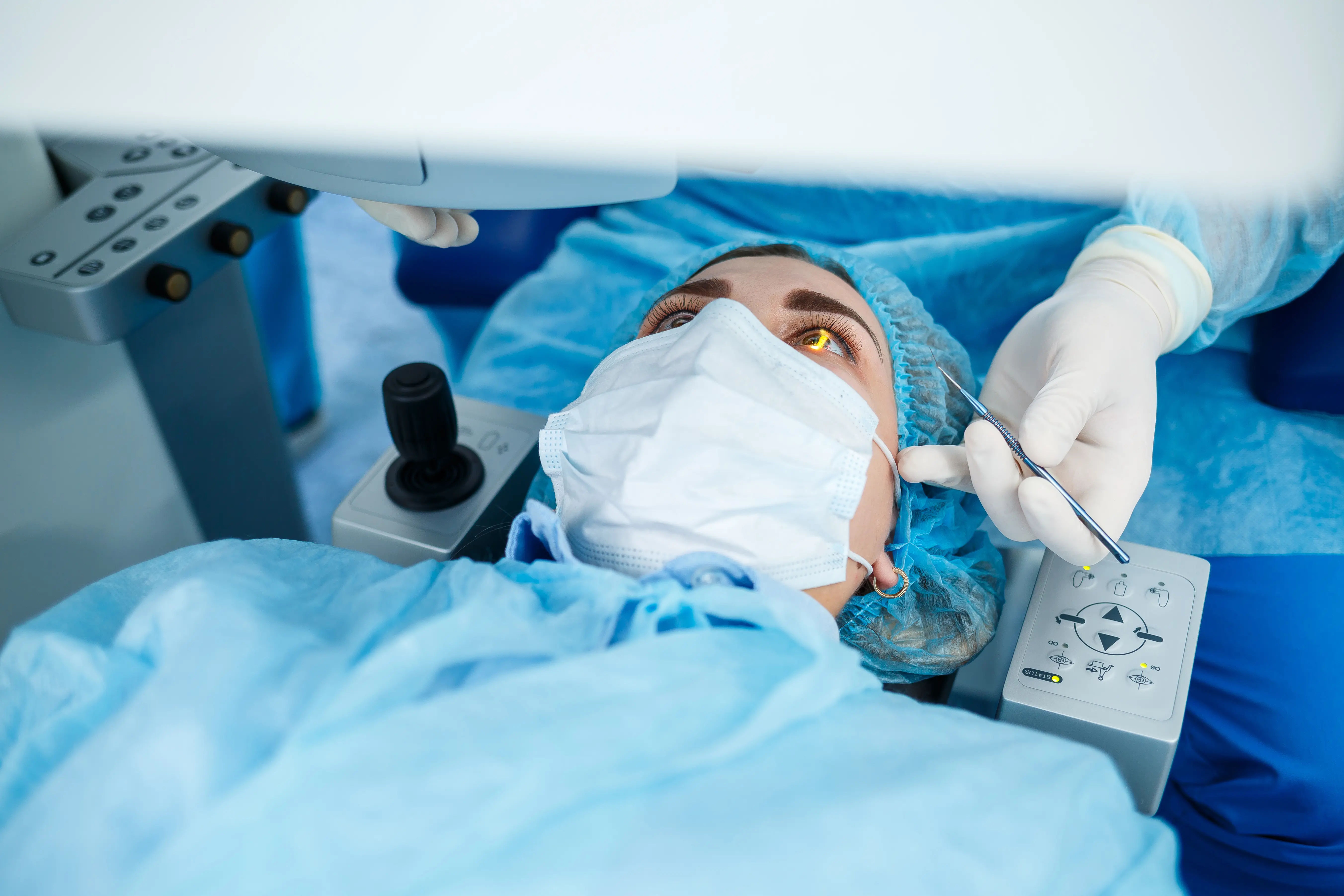Precautions After LASIK Eye Surgery
Learn the key precautions to follow after LASIK eye surgery and discover tips that may help promote a safe and smooth recovery.

Written by Dr. Shaik Abdul Kalam
Reviewed by Dr. J T Hema Pratima MBBS, Fellowship in Diabetes Mellitus
Last updated on 13th Jan, 2026

Introduction
LASIK (Laser-Assisted In Situ Keratomileusis) eye surgery is a popular and effective procedure to correct vision problems like nearsightedness, farsightedness, and astigmatism. While the surgery itself is quick and relatively painless, proper post-operative care is crucial for a smooth recovery and optimal results.
If you’ve recently undergone LASIK or are planning to, here’s a simple, step-by-step guide on the precautions you should take to ensure a safe and speedy recovery.
Why Are Precautions Important After LASIK?
After LASIK, your eyes need time to heal. The cornea (the front part of your eye) undergoes reshaping during the procedure, and it takes a few weeks to fully stabilise. Following the right precautions helps:
Prevent infections
Avoid complications like dry eyes or corneal flap issues
Ensure long-lasting clear vision
Consult Top Specialists for Personalised Health Advice
Immediate Post-Surgery Care (First 24-48 Hours)
The first few hours and days after LASIK are the most critical. Here’s what you should do:
1. Rest Your Eyes
Keep your eyes closed for at least 3-4 hours after surgery.
Avoid reading, watching TV, or using phones/screens.
2. Wear Protective Eyewear
Your doctor will provide protective goggles to prevent accidental rubbing or pressure on your eyes.
Wear them while sleeping for the first few nights.
3. Use Prescribed Eye Drops
Antibiotic & anti-inflammatory drops prevent infection and reduce swelling.
Artificial tears may help with dryness.
4. Avoid Touching or Rubbing Your Eyes
Rubbing can dislodge the corneal flap, leading to complications.
If itching occurs, use lubricating drops instead.
5. Avoid Water Exposure
No swimming, hot tubs, or showers for at least a week.
When washing your face, use a damp cloth and avoid the eye area.
First Week After LASIK: Key Precautions
As healing progresses, maintaining hygiene and protecting your eyes remain important.
1. Skip Makeup & Lotions
Avoid eye makeup, creams, or perfumes near the eyes for at least a week. These can introduce bacteria or irritate healing eyes.
2. Limit Screen Time
Digital screens (phones, laptops) can strain your eyes. Follow the 20-20-20 rule: Every 20 minutes, look 20 feet away for 20 seconds.
3. Wear Sunglasses Outdoors
Your eyes will be light-sensitive after LASIK. Wear 100% UV-protected sunglasses to shield them from sunlight and dust.
4. Avoid Strenuous Activities
No heavy exercise, weightlifting, or contact sports for at least a week. Sweat can irritate your eyes, and physical strain may affect healing.
5. No Smoking or Alcohol
Smoking can slow healing and increase dryness.
Alcohol can dehydrate you, worsening dry eyes.
Long-Term Precautions (First Month & Beyond)
Recovery continues in the weeks after surgery. A few adjustments may support long-term eye health.
1. Attend Follow-Up Appointments
Your doctor will schedule check-ups to monitor healing. Don’t skip these as they help catch any issues early.
2. Stay Hydrated & Eat Healthy
Drink plenty of water to prevent dry eyes.
Include foods rich in omega-3 fatty acids, such as fish and walnuts.
3. Avoid Dusty or Polluted Areas
Dust and smoke can irritate healing eyes. Wear protective glasses if needed.
4. Gradually Resume Activities
After 2-3 weeks, you can slowly return to:
Light workouts, but avoid swimming for a month.
Wearing eye makeup, but use new products to avoid contamination.
5. Watch for Warning Signs
Contact your doctor immediately if you experience:
Severe pain or discomfort
Sudden vision loss or blurriness
Redness, swelling, or unusual discharge
Bonus Tips for Faster Recovery
Even after taking standard precautions, a few extra habits may help enhance your comfort and speed up the healing process.
Sleep on your back to prevent eye pressure.
Use a humidifier at home to reduce dryness.
Avoid driving until your doctor confirms it’s safe.
Final Thoughts
LASIK surgery can give you clear, glasses-free vision, but proper aftercare is key to success. By following these precautions, you’ll minimise risks and enjoy the best possible results.
If you have concerns about your recovery or need expert advice, Apollo 24|7 offers easy online consultations with eye specialists. You can also book follow-up tests if needed.
Consult Top Eye Specialists
Consult Top Specialists for Personalised Health Advice
Dr. Venkateswaran Sivaprakasam
Ophthalmologist
42 Years • MBBS, Diploma in Ophthalmology
Tiruvannamalai
Shiva Eye And General Hospital, Tiruvannamalai
Dr. Padmini S
Ophthalmologist
4 Years • MBBS,MS
Bengaluru
Apollo Medical Center, Marathahalli, Bengaluru
Dr. V.chittibabu
Ophthalmologist
30 Years • MBBS, DO, Ms (Ophthalmology)
Vellore
Krupa Eye Clinic, Vellore

Dr Deepti Govila
Ophthalmologist
26 Years • MBBS, MS Ophthalmology
Delhi
Apollo Hospitals Indraprastha, Delhi

Dr. K Sreekumar Reddy
Ophthalmologist
26 Years • MBBS MD (Ophthalmology) EGESTOLP
Hyderabad
Apollo Hospitals Jubilee Hills, Hyderabad
(25+ Patients)
Consult Top Eye Specialists
Dr. Venkateswaran Sivaprakasam
Ophthalmologist
42 Years • MBBS, Diploma in Ophthalmology
Tiruvannamalai
Shiva Eye And General Hospital, Tiruvannamalai
Dr. Padmini S
Ophthalmologist
4 Years • MBBS,MS
Bengaluru
Apollo Medical Center, Marathahalli, Bengaluru
Dr. V.chittibabu
Ophthalmologist
30 Years • MBBS, DO, Ms (Ophthalmology)
Vellore
Krupa Eye Clinic, Vellore

Dr Deepti Govila
Ophthalmologist
26 Years • MBBS, MS Ophthalmology
Delhi
Apollo Hospitals Indraprastha, Delhi

Dr. K Sreekumar Reddy
Ophthalmologist
26 Years • MBBS MD (Ophthalmology) EGESTOLP
Hyderabad
Apollo Hospitals Jubilee Hills, Hyderabad
(25+ Patients)




